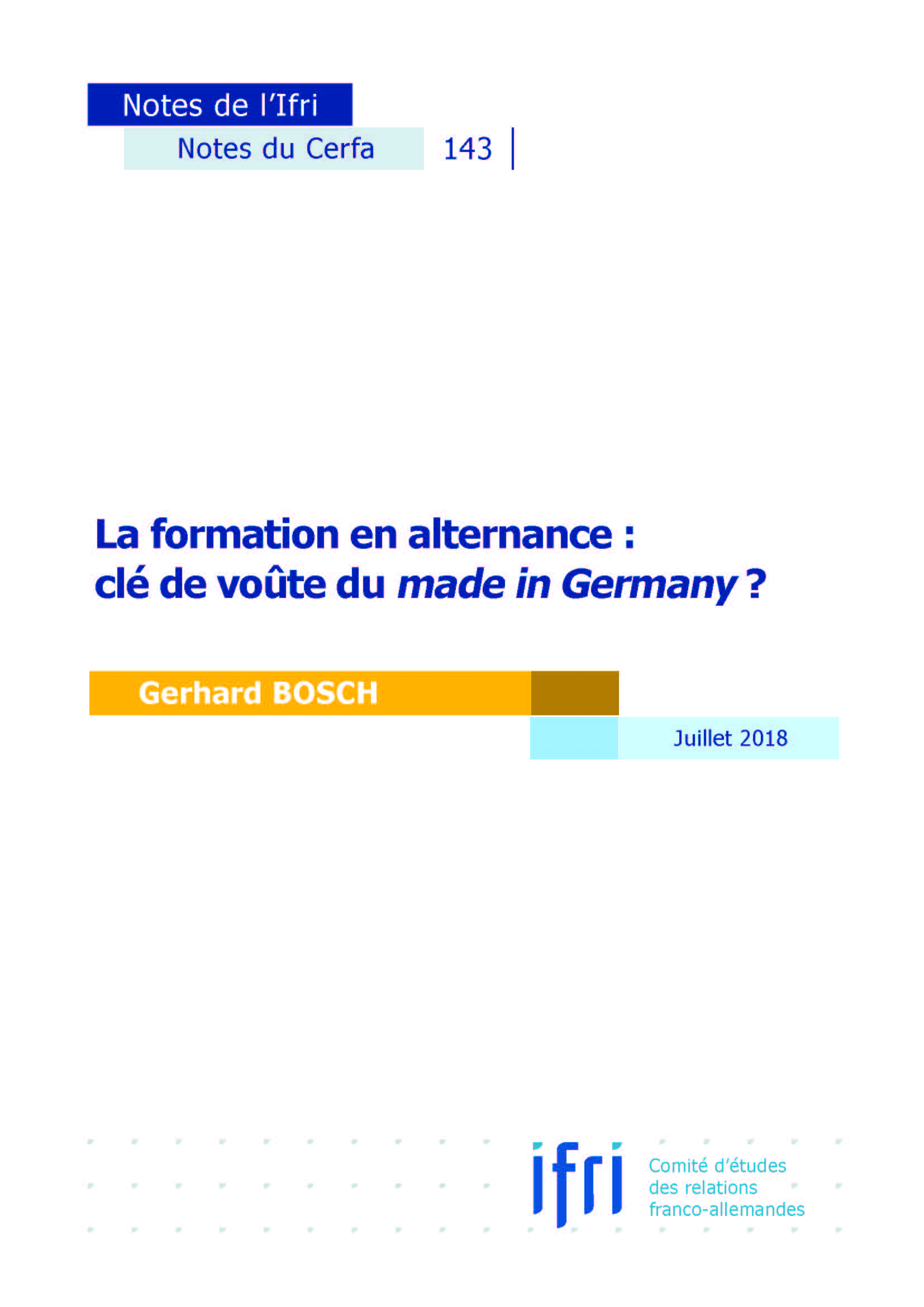Dual system of professional training: keystone of "made in Germany"?

The German dual system of professional training is seen as an international reference model. It aims at training qualified employees for an innovative economy rather than being the last resort for less able pupils. Parents and adolescents regard apprenticeships as an entry ticket to a good job with career opportunities; companies value the advantages of practice-oriented training in situ conceived in cooperation with its own professionals as this spares them the costs of integrating school graduates.

The modernisation of professional training in combination with more flexible forms of work organisation partly explain the recovery of the German economy in the mid-90s. Social partners and politicians feel responsible for the creation of adequate numbers of apprenticeship positions – even when year groups are particularly large or in times of crisis. Contrary to the situation in many other countries, young people in Germany do therefore not become outsiders that carry the burden of crises.
However, the problems of the dual system cannot be ignored. The undermining of the German collective wage system that is unable to guarantee appropriate wages has led school graduates to prefer university studies over professional training schemes. Particularly in the poor wage sectors apprenticeships are becoming less and less attractive.
This article is available in French and German only:
- Das duale System der Berufsausbildung in Deutschland
- La formation en alternance : clé de voûte du made in Germany ?
Related centers and programs
Discover our other research centers and programsFind out more
Discover all our analyses
Securing critical raw material (CRM) value chains – a prerequisite for Europe’s technological resilience
At the heart of economic security, technological resilience is a backbone of the European Union’s (EU) competitiveness. The EU’s energy and digital transitions depend on critical raw materials (CRM).

Reconciling competitiveness and demographic change: a Franco-German imperative
France and Germany are facing parallel demographic shifts that could reshape the future of their economies and their social models. These shifts reflect broader European patterns but are magnified by the central role both nations play in EU governance and competitiveness.
Taking the Pulse: Does France's Political Crisis Weaken Europe's Geopolitical Hand?
While the EU tries to navigate a myriad international challenges, France is experiencing historic political disarray. What impact will instability in Paris have on Europe's geostrategic capacity?
Imaginary and Reality of the Franco-German border: a Laboratory for Europe of tomorrow
In Europe, the question of borders is a central issue. According to the European Parliament, border regions cover around 40% of the European Union (EU) territory, concentrate 30% of its population and produce nearly a third of its gross domestic product.








